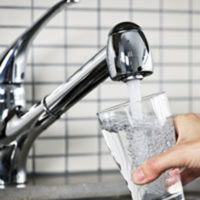MENU
- Home
- Overview
- Attorneys
- Practice Areas
- Firm News
- Blog
- Contact
 New Jersey’s largest city is facing a water crisis as lead from antiquated sewer pipes is still being detected in drinking water supplies despite the distribution of 40,000 water filters to city residents last year. The city is calling on President Trump and the Environmental Protection Agency to help fund new sewer infrastructure to replace the current system of lead pipes.
New Jersey’s largest city is facing a water crisis as lead from antiquated sewer pipes is still being detected in drinking water supplies despite the distribution of 40,000 water filters to city residents last year. The city is calling on President Trump and the Environmental Protection Agency to help fund new sewer infrastructure to replace the current system of lead pipes.
New Jersey Governor Phil Murphy and Newark Mayor Ras Baraka are enlisting the help of New Jersey legislators in writing to federal and state government officials for funds to replace the sewer system throughout the city. In the meantime, Newark residents are getting free bottled water for eating and drinking.
Water filters given to residents last year were expected to remove 99 percent of lead from home water supplies. Recent tests taken by the EPA revealed that the lead content in a random sampling of homes still contained lead levels more than 15 parts per billion, which exceeded the federal and state standards for safe drinking water.
An estimated 15,000 residential properties were affected by the contaminated water, which means the city must now supply these homes with bottled water until the problem can be remedied. Long lines at distribution centers and problems with transportation were complicating the process for Newark residents. Newark’s poverty rate is 28 percent compared to the national poverty rate of 12.3 percent. Finding transportation to distribution centers is difficult for a large majority of people in the city, which means some residents are still dependent on contaminated water supplies.
Residents claimed they had to wait two hours in line for a case of bottled water at a senior facility distribution center. Many elderly residents in poor health have a great deal of difficulty traveling to these areas and then carrying the case of water weighing up to 30 pounds back to their home.
The national Centers for Disease Control and Prevention claims that there are no safe levels of lead exposure. Infants, young children, and pregnant women are most susceptible to suffering health complications from lead exposure that can come from contaminated drinking water, ingestion, and through inhalation of lead particles. Once lead enters the body, it is stored in the bones and tissues of the body where it continues to infiltrate through the blood and skeletal systems.
Newark’s University Hospital is offering free blood tests to city residents to determine the level of lead in their body.
If you believe you have been exposed to lead, call the Delaware environmental lawyers at Jacobs & Crumplar, P.A. today. Call us at 302-656-5445 or contact us online to schedule a free consultation. Located in Wilmington and Georgetown, Delaware, we serve clients throughout Dover, New Castle County, and Sussex County.